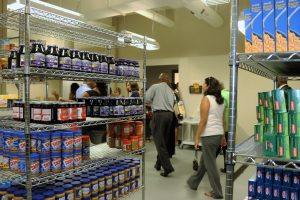What is best to donate to food banks, shelters
December 3, 2021 The holiday season brings out the sense of giving in most of us and that extends beyond are family and friends.
The holiday season brings out the sense of giving in most of us and that extends beyond are family and friends.
Food pantries and homeless shelters are often the recipients of more generosity at this time of year over most other months.
Before donating to local places, here are important things to keep in mind about what you can (and should) donate and what food banks won’t accept.
Food banks accept dry and canned food donations — essentially, any food that is nonperishable or what you can normally keep in your home pantry and it won’t go bad.
Specifically, food banks often need items like:
Peanut butter
Canned soup
Canned fruit
Canned vegetables
Canned stew
Canned fish
Canned beans
Pasta (most prefer whole grain)
Rice (most prefer brown rice)
Canned milk
Baby food in jars
Avoid food with damaged packaging such as dented or bloated cans, packaging that is already open, or even items in glass containers.
Also, baked goods may sound like a warm idea, they are in fact not a good idea because the pantry cannot confirm how the baked goods were made or their ingredients.
Additionally, some food banks accept personal care and household items, since many families struggle to afford these items and they aren’t covered by other food assistance programs like SNAP.
If you’re still stumped about what to donate, just look in your own pantry. Families struggling with hunger often can’t afford the staples that we normally have stocked at home.
Here are some nonfood items that shelter need:
Toilet paper
Diapers and wipes
Socks and shoes.
New underwear
Blankets
General hygiene products
Feminine hygiene items
New kids’ clothes
School supplies
Toiletries like toothbrushes, toothpaste, shampoo, deodorant, lip balm.







